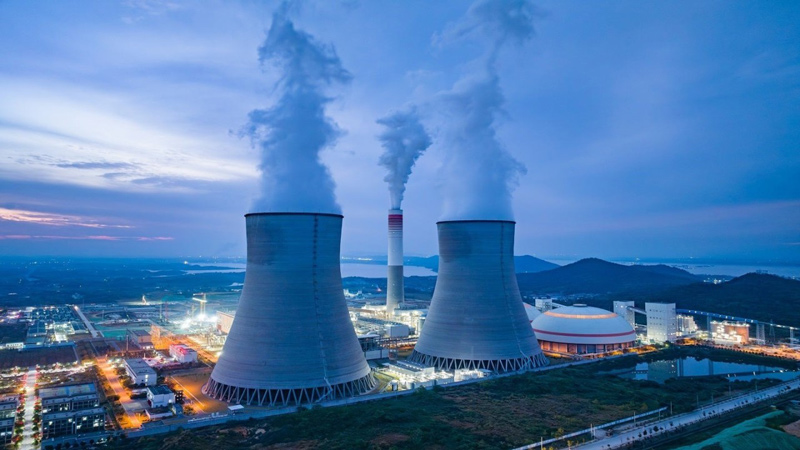The power station industry is a cornerstone of modern infrastructure, responsible for generating electricity that fuels residential, commercial, and industrial activities. Power stations convert various primary energy sources into electrical power through diverse technologies, playing a pivotal role in global economic development and quality of life.
Power stations are categorized by their energy sources:
Fossil Fuels: Coal, oil, and natural gas plants dominate historically, using combustion to produce steam that drives turbines. Natural gas, with lower emissions, is increasingly replacing coal.
Nuclear: Utilizes fission reactions to generate heat, producing steam for turbines. Known for high output but controversial due to safety and waste concerns.
Renewables: Hydroelectric (water flow), wind (turbines), solar (photovoltaic cells), geothermal (earth’s heat), and biomass (organic matter). These are growing rapidly due to sustainability goals.

In the power station industry, various types of valves are employed to ensure efficient, safe, and reliable operation across different systems. Here's an organized overview of key valve types and their applications:
1. Gate Valve
Function: On/Off isolation with minimal pressure drop.
Applications: Main steam lines, feedwater systems, and high-pressure/temperature environments.
Features: Robust design for full open/close operation; not suitable for throttling.
2. Globe Valve
Function: Precise flow throttling and regulation.
Applications: Power station globe valve is widely applied in feedwater control, cooling systems, and steam bypass lines.
Variants: Angle and Y-pattern globe valves for specific spatial or flow requirements.
3. Ball Valve
Function: Quick shut-off with tight sealing.
Applications: Fuel lines (natural gas, oil), auxiliary systems, and chemical dosing.
Features: Low maintenance, suitable for high-pressure applications.
4. Butterfly Valve
Function: The butterfly valve functions to regulate flow or provide isolation in large-diameter pipes.
Applications: Cooling water systems, condenser circuits, and hydroelectric penstocks.
Features: Compact, cost-effective, and efficient for low-pressure loss.
5. Check Valve (Non-Return Valve)
Function: Prevent backflow.
Applications: The Power Station check valve is mainly applied in feedwater pump discharge and turbine extraction lines.
Types: Swing, lift, or dual-plate designs depending on flow dynamics.
6. Knife Gate Valve
Function: Cut through viscous fluids.
Applications: Fuel oil, ash slurry, and thick sludge.
Features: Sharp-edged gate for sealing in heavy fluids.
7. Plug Valve
Function: On/Off or divert flow.
Applications: Plug valve applications include fuel systems, serving as an alternative to ball valves.
Features: Cylindrical plug design; suitable for frequent operation.